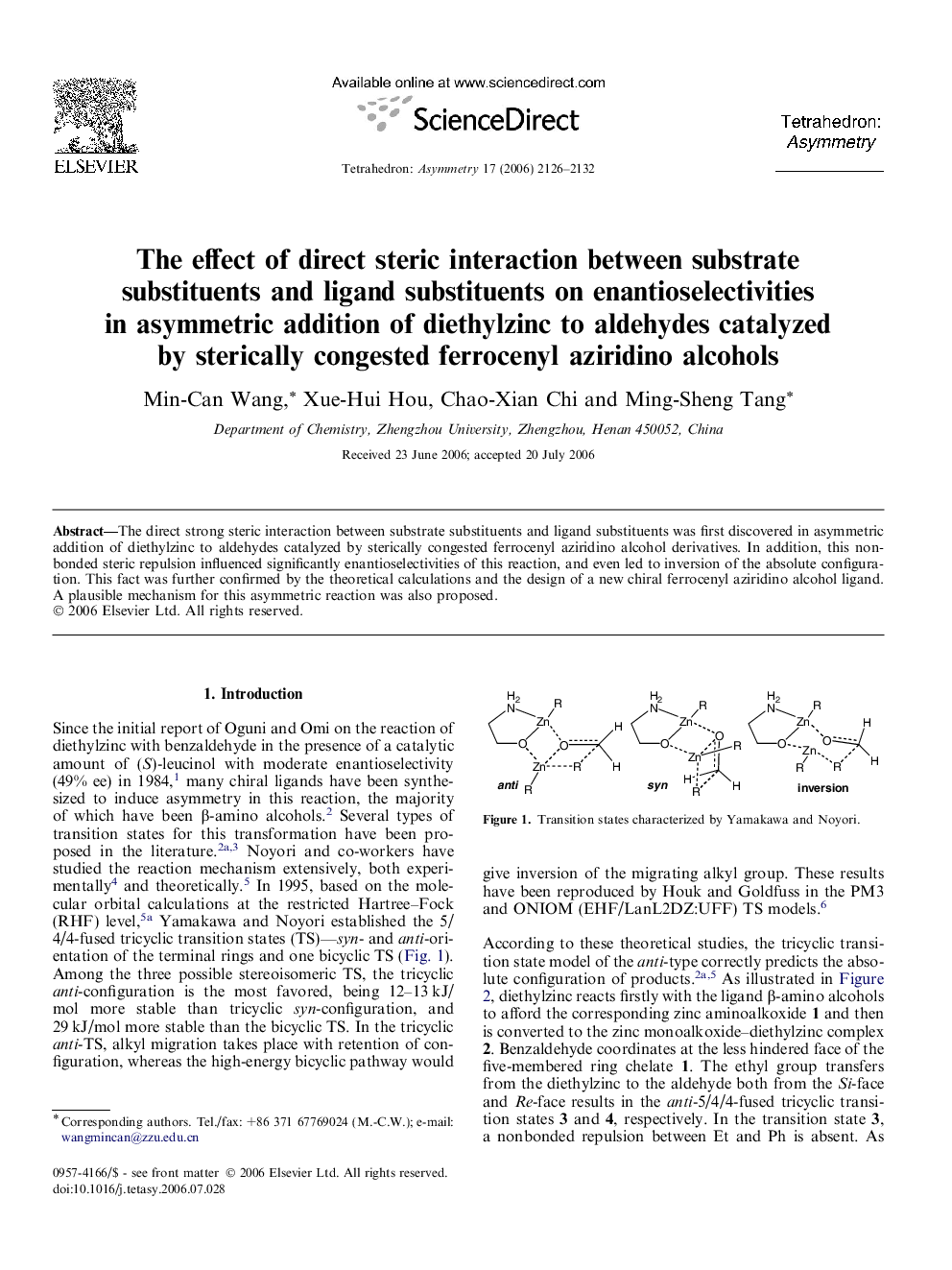| Article ID | Journal | Published Year | Pages | File Type |
|---|---|---|---|---|
| 1348235 | Tetrahedron: Asymmetry | 2006 | 7 Pages |
The direct strong steric interaction between substrate substituents and ligand substituents was first discovered in asymmetric addition of diethylzinc to aldehydes catalyzed by sterically congested ferrocenyl aziridino alcohol derivatives. In addition, this nonbonded steric repulsion influenced significantly enantioselectivities of this reaction, and even led to inversion of the absolute configuration. This fact was further confirmed by the theoretical calculations and the design of a new chiral ferrocenyl aziridino alcohol ligand. A plausible mechanism for this asymmetric reaction was also proposed.
Graphical abstractFigure optionsDownload full-size imageDownload as PowerPoint slide
Methyl (2S,3S)-N-ferrocenylmethyl-allo-l-threomine esterC16H21FeNO3[α]D20=-40.8 (c 1.00, CHCl3)Source of chirality: asymmetric synthesisAbsolute configuration: (2S,3S)
Methyl (2S,3R)-1-ferrocenylmethyl-3-methylaziridine-2-carboxylateC16H19FeNO2[α]D20=-86.6 (c 0.77, CHCl3)Source of chirality: asymmetric synthesisAbsolute configuration: (2S,3R)
(2S,3R)-1-Ferrocenylmethyl-3-methylaziridin-2-yl(diphenyl)methanolC27H27FeNO[α]D20=-10.0 (c 0.46, CHCl3)Source of chirality: asymmetric synthesisAbsolute configuration: (2S,3R)
